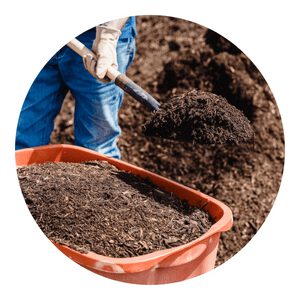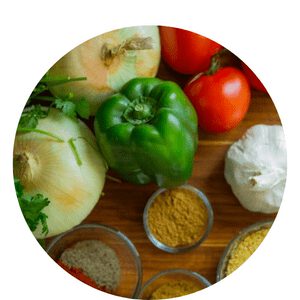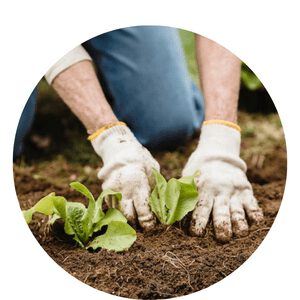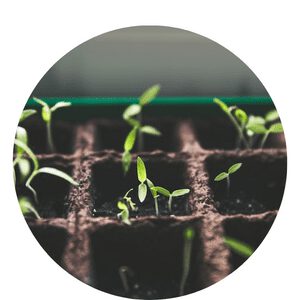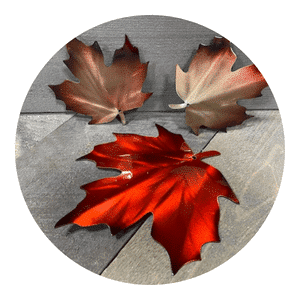How To Control Pests and Diseases Naturally
If you are looking for natural and effective ways to control pests and diseases in your garden, then this article is for you.
Keeping pests and diseases out of the garden can be difficult, especially when using chemical products that may not always work.
Fortunately, there are a variety of natural techniques that can be used to combat common pest problems in an organic and safe way.

Pests and Diseases Menu
Controlling pests and diseases naturally in the garden
An organic garden can be a beautiful and rewarding addition to any backyard.
Unfortunately, no matter how well you take care of your plants, it is inevitable that some sort of pest or disease will eventually crop up.
Fortunately, there are many ways to naturally control pests and diseases in the garden without resorting to harmful chemicals or pesticides.
We’ll look at techniques such as companion planting, mulching, creating diversity among plants, using beneficial insects like ladybugs and praying mantises, encouraging birds into the garden, using garlic spray as a deterrent and more.
Each method has its own advantages and disadvantages so it’s important to know which one is best suited for your needs.
Understanding the benefits of natural pest and disease control
Pests and diseases can wreak havoc on gardens, crops, and landscapes.
But, instead of relying on chemical pesticides or fungicides to control these issues, many homeowners are turning to natural pest and disease control methods for a more sustainable approach.
Not only is this an effective way to protect your plants from pests and disease without toxic chemicals, but it also brings some additional benefits.
From increased biodiversity in the garden to decreased costs for pest control treatments, there are numerous advantages of using natural pest and disease control strategies.
Understanding how these methods work can help you identify which ones will be most beneficial for your particular situation.
From companion planting techniques like planting marigolds near tomatoes to encouraging beneficial organisms like ladybugs into your landscape—there are many options available that promote healthy gardens while reducing the impact of pests and diseases naturally.
Tend my garden with a gentle touch, Control pests and diseases naturally as such. Seek remedies from the earth beneath, Do so with care and do not deplete. Beneath soil, sand and water's flow, The power of plants will make all grow! Forget synthetic treatments, their ways they do lack, The natural treatments never fail to come back.
Chappy The Gardener
Prevention strategies for avoiding pest and disease problems
Pests and diseases can have a devastating effect on plants, especially if left untreated.
Fortunately, with the right prevention strategies, gardeners can avoid many of these problems naturally.
Here are three key strategies for controlling pests and diseases without using harsh chemicals: choosing resistant plants, maintaining healthy soil and plants, and rotating crops.
When selecting plant varieties for your garden, look for ones that are known to be resistant or tolerant to certain pests and diseases.
This is an important first step in preventing damage from occurring in the first place.
Also consider planting companion plants that naturally repel certain pests like marigolds or garlic next to vulnerable crops like tomatoes or peppers.
In addition to choosing the right varieties of plants, it’s important to maintain healthy soil and keep your garden clean.
Natural pest control methods
In order to keep your garden and home free from pests, it is important to use natural pest control methods.
Natural pesticides, such as biological control and natural compounds, are effective ways of controlling pests without the need for harsh chemicals.
Biological control involves using predators such as ladybugs or lacewings to naturally reduce the population of damaging pests.
Natural compounds like neem oil can also be used for managing insect populations without harming beneficial insects or other organisms.
The use of natural pest control methods has many advantages over chemical pesticides, such as being safer for the environment and reducing the risk of unwanted exposure to toxic chemicals.
Additionally, these approaches are often more cost-effective since they don’t require expensive equipment or frequent reapplication intervals.
As a result, many gardeners find that using natural pest controls results in better outcomes with fewer resources.
Natural disease control methods
For many gardeners and farmers, using natural methods to control pests and diseases is an attractive option.
Natural disease control methods can help reduce the risk of chemical contamination in the environment, while also allowing for a more sustainable method of plant protection.
Identification of potential plant diseases is essential for successful disease management.
Common signs that may indicate a problem include wilting leaves, distorted growth or discoloration on leaves or fruits.
When observing plants for symptoms of disease, it’s important to take into account environmental factors such as temperature and humidity that could be contributing factors before assuming that a pathogen is present.
Common challenges and solutions
Organic and natural pest and disease control methods are becoming increasingly popular, however there are several common challenges that must be addressed for them to be effective.
These methods can often require more work than traditional chemical treatments, as well as needing a deeper understanding of the environment in which they will be used.
In addition, many natural approaches need regular monitoring and adjusting to ensure the best results.
The most important thing when employing natural methods of pest and disease control is to understand their potential limitations.
This means that although these techniques can provide a safe alternative, it is essential to properly prepare for their execution in order to maximize their effectiveness.
For example, timely crop rotation or using companion planting strategies can have a positive impact on soil health and insect populations.
Additionally, introducing beneficial insects such as ladybugs into your garden may help reduce pest problems without having any negative effect on the environment.
Tips for maintaining a healthy garden
Gardening can be a rewarding hobby, but it requires effort to keep your garden looking its best.
The presence of pests and diseases can cause damage to plants, reducing their health and beauty.
Fortunately, there are several steps you can take to protect your garden from these problems and maintain a healthy and pest-and disease-free environment.
First, practice proper plant care by providing adequate sunlight, water and nutrition.
This will help keep your plants strong so they have the best chance of resisting any infestations or infection.
Additionally, consider composting as an alternative form of fertilizer that provides natural nutrients for the soil while keeping weed growth in check.
Finally, carefully monitor the condition of each plant in your garden regularly; this will allow you to identify and address any issues quickly before they become major problems.
In conclusion, controlling pests and diseases naturally is an effective way to keep your garden healthy.
By choosing the right plants, pruning correctly, and removing damaged leaves, you can reduce the risk of infection in your garden.
Additionally, you can use natural solutions like neem oil to combat existing pests or diseases without introducing harsh chemicals into your environment.
Planting flowers that attract beneficial insects and spraying homemade concoctions on leaves can also be effective ways to protect your plants from harm.
Click To Grow
Helps Us Grow – Share If You Like










